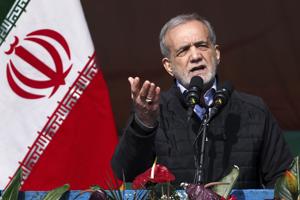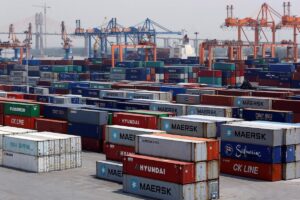
DUBAI, United Arab Emirates — In a significant escalation of tensions, Iran’s President has ordered the suspension of the country’s cooperation with the International Atomic Energy Agency (IAEA). This decision, announced on Wednesday, follows recent airstrikes by the United States and Israel targeting Iran’s key nuclear facilities. The move is expected to further constrain the IAEA’s ability to monitor Iran’s nuclear activities, raising concerns about the future of nuclear oversight in the region.
The suspension of cooperation with the IAEA marks a critical juncture in Iran’s nuclear policy. The airstrikes, which reportedly caused substantial damage to Iran’s nuclear infrastructure, have been condemned by Tehran as acts of aggression. In response, Iran’s leadership has decided to limit the access of international inspectors, a decision that could have far-reaching implications for global nuclear non-proliferation efforts.
Background of Escalating Tensions
This development comes amid a backdrop of escalating tensions between Iran and Western powers, particularly the United States and Israel. The strained relations have been exacerbated by disagreements over Iran’s nuclear program, which Tehran insists is for peaceful purposes. However, Western nations remain skeptical, citing Iran’s past activities and lack of transparency.
Historically, Iran’s nuclear program has been a point of contention since its inception. The 2015 Joint Comprehensive Plan of Action (JCPOA), commonly known as the Iran nuclear deal, was a landmark agreement aimed at curbing Iran’s nuclear capabilities in exchange for the lifting of economic sanctions. However, the deal has been on shaky ground since the U.S. withdrawal in 2018 under President Donald Trump, leading to increased hostilities and a gradual unraveling of compliance by Iran.
Implications for Global Nuclear Oversight
The suspension of cooperation with the IAEA is likely to impede the agency’s ability to verify the peaceful nature of Iran’s nuclear activities. The IAEA has been instrumental in monitoring Iran’s compliance with international nuclear agreements, and its inspections are a critical component of global nuclear oversight.
“The IAEA’s role is pivotal in ensuring that nuclear programs are not diverted for weaponization,” said Dr. Emily Landon, a nuclear policy expert. “Without their oversight, the international community loses a crucial mechanism for transparency and trust-building.”
The move also raises questions about the future of diplomatic efforts to resolve the nuclear standoff. With reduced oversight, the potential for misunderstandings and miscalculations increases, potentially leading to further escalations.
Expert Opinions and Historical Parallels
Experts warn that the current situation bears similarities to past crises in nuclear diplomacy. The suspension of cooperation recalls the early 2000s, when Iran’s nuclear ambitions first came under intense international scrutiny. During that period, a lack of transparency and communication led to heightened tensions and the imposition of severe sanctions on Iran.
Dr. James Carter, a former diplomat and expert on Middle Eastern affairs, noted, “History has shown us that isolation and lack of dialogue only exacerbate conflicts. It’s crucial for all parties to return to the negotiating table to prevent further destabilization.”
Meanwhile, regional allies and adversaries alike are closely monitoring the situation. The Gulf States, in particular, have expressed concerns about the potential for a nuclear arms race in the Middle East, should Iran’s nuclear program go unchecked.
Looking Ahead: Potential Consequences
The decision to suspend cooperation with the IAEA could have significant consequences for Iran. Economically, the country risks facing further sanctions and isolation from the international community. Politically, the move may embolden hardliners within Iran, complicating efforts to reach a diplomatic resolution.
Internationally, the suspension could undermine ongoing efforts to revive the JCPOA, as trust between Iran and Western powers continues to erode. The lack of oversight may also prompt other countries to reconsider their nuclear policies, potentially destabilizing the already fragile non-proliferation regime.
“The path forward is fraught with challenges, but diplomacy remains the best option for resolving this crisis,” emphasized Dr. Landon. “Engagement, rather than isolation, is key to ensuring a peaceful resolution.”
As the situation unfolds, the international community will be watching closely, hoping for a return to dialogue and cooperation. The stakes are high, and the consequences of inaction could be profound, not just for Iran, but for the entire region and the world.






